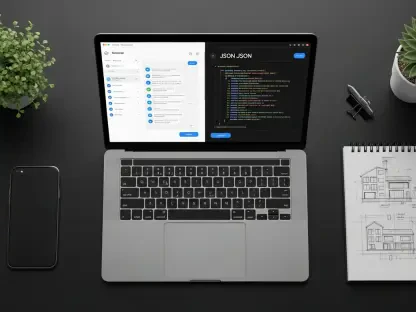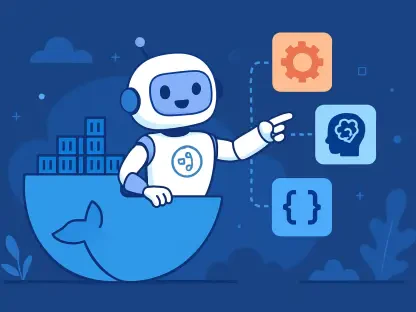Serverless computing has emerged as a paradigm shift within the tech industry, liberating developers from the overhead of managing infrastructure and enabling them to focus solely on writing and deploying code. This model has brought about significant advancements in how applications are developed and managed. However, despite these benefits, debugging serverless architectures remains a complex, labor-intensive task. Developers often grapple with piecing together logs and metrics from a myriad of AWS services, making efficient debugging a significant challenge. Enter the Serverless Model Context Protocol (MCP), an innovative solution poised to transform the debugging landscape within AWS serverless environments. This protocol leverages AI-enhanced capabilities to streamline the identification and resolution of issues, promising significant improvements in productivity and efficiency.
Streamlining Development with AI-Assisted Debugging
The Serverless MCP introduces a groundbreaking approach by integrating AI-assisted debugging directly into modern Integrated Development Environments (IDEs). This integration, featured in development tools like Cursor and Windsurf, allows developers to remain within their coding environments while diagnosing and fixing issues, thereby eliminating the need to switch between multiple interfaces. The protocol’s AI-enhanced capabilities significantly reduce the cognitive load on developers, allowing them to seamlessly transition from identifying problems to implementing solutions. This shift not only accelerates the debugging process but also enhances the overall development workflow by presenting real-time insights directly within the IDE.
Specifically, the AI models used in tools like Cursor take full advantage of MCP’s capabilities. These models query infrastructure telemetry in real-time, fetching relevant infrastructure state, logs, and performance metrics. This information is then used to suggest improvements, flag misconfigurations, or explain recent failures. Thus, MCP integration transforms IDEs from mere coding environments into comprehensive debugging assistants. Developers can now rely on these AI models to provide contextual recommendations and insights, significantly enhancing their ability to address issues quickly and effectively.
Tackling Serverless Debugging Challenges
Traditionally, debugging in AWS serverless architectures entails manually navigating through various AWS consoles and interpreting dispersed logs, metrics, and configuration details. Services like AWS Lambda for compute, DynamoDB for storage, API Gateway for endpoint exposure, and IAM for permissions management each generate their own diagnostic data, often siloed in separate locations. This fragmentation complicates the debugging process, forcing developers to spend a considerable amount of time locating specific CloudWatch logs for Lambda executions, tracing failed API Gateway requests, and identifying misconfigured IAM roles. The need to cross-reference AWS documentation with real-time code behavior further adds to the complexity.
Serverless MCP mitigates these challenges by offering a consolidated AI-assisted debugging platform that operates within the developer’s IDE. By providing deep telemetry from deployed services and presenting them directly within IDEs like Cursor and Windsurf, MCP ensures that developers no longer need to navigate complex AWS consoles to resolve issues. The protocol pulls relevant logs and metrics, highlights failed invocations and error traces within the code contextually, visualizes service relationships, and recommends fixes for common issues such as IAM misconfigurations or timeout errors. This consolidation of information significantly reduces the time developers spend context-switching and allows them to focus more on coding and less on managing infrastructure.
Integrative Features of Serverless MCP
One of the standout features of Serverless MCP is its real-time access to logs, metrics, and performance insights from AWS infrastructure resources. When activated using the “serverless dev” feature available in Serverless Framework CLI v3.38+, this protocol provides immediate feedback on the production behavior of deployed services. Developers can visualize service relationships, such as connections between Lambda functions and other AWS resources like API routes or DynamoDB tables. This visualization aids in understanding the interactions between different components of the serverless architecture, making it easier to identify and address issues.
The inclusion of deep telemetry capabilities within the IDE further enhances the debugging experience. For instance, developers can hover over a Lambda function handler in their code and instantly see related logs from the last execution, including error messages and performance metrics like duration and cold start times. This inline debugging support allows developers to quickly identify and rectify issues without leaving their coding environment. Additionally, the protocol’s ability to recommend fixes for common issues, such as misconfigured IAM roles or timeout errors, further streamlines the debugging process and enhances overall productivity.
Enhanced Debugging Experience
Serverless MCP introduces an innovative approach by seamlessly integrating AI-assisted debugging within modern Integrated Development Environments (IDEs). This implementation in development tools, such as Cursor and Windsurf, enables developers to diagnose and fix issues without leaving their coding environments, thus eliminating the need to switch between various interfaces. The AI-enhanced capabilities of the protocol significantly ease the cognitive load on developers, facilitating a smooth transition from problem identification to solution deployment. This advancement not only speeds up the debugging process but also improves the overall development workflow by providing real-time insights directly within the IDE.
AI models in tools like Cursor fully leverage MCP’s capabilities by querying infrastructure telemetry in real-time. They fetch pertinent infrastructure state, logs, and performance metrics, using this data to suggest enhancements, identify misconfigurations, or explain recent failures. As a result, MCP integration elevates IDEs from simple coding platforms to comprehensive debugging assistants. Developers now benefit from contextual recommendations and insights provided by these AI models, greatly improving their ability to address issues quickly and efficiently.









